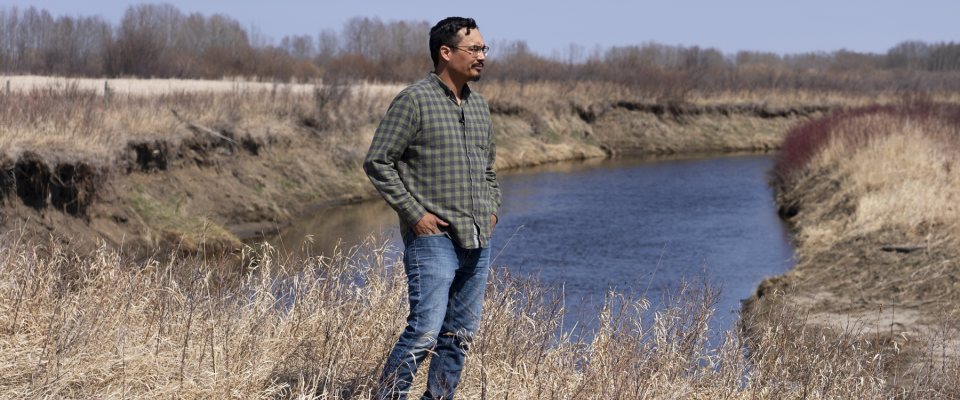Judy DaSilva has spent over 20 years fighting the effects of mercury poisoning and other ongoing threats to her community’s water. For the grandmother and community elder from Grassy Narrows First Nation, it’s a matter of justice and cultural reclamation. Most importantly, it’s a question of the survival of her people.
When PSAC partnered with Grassy Narrows to launch the Thirsty for Justice campaign seven years ago demanding access to clean water in all First Nations communities, it was one of more than 100 First Nations that did not have access to safe water for drinking, cooking and bathing. At the time, the federal government promised to end all long-term drinking advisories by 2021.
Yet here we are on the eve of 2023, with 104 advisories still in effect. The federal government may have finally agreed to fund a long-overdue mercury care home in the community, but in the short time since our last campaign, two former Grassy Narrows chiefs have passed away far too young, with mercury poisoning being a significant factor in their causes of death.
To this day, Grassy Narrows community members are still fighting for fair compensation for the harm caused by decades of mercury poisoning, an end to mining and logging on their territory, and support for the way of life they had before industry poisoned their land, water and community.
“Our way of life was robbed from us, and we’re fighting to get that back. To give the younger ones a chance to be ok,” says Chrissy Isaacs, a mother and grandmother in the community.
At the same time, across the land, countless others – many PSAC members – are also still fighting for access to clean water, one of the most basic human rights.
That’s why PSAC launched the Still Thirsty for Justice campaign this year, calling on the federal government to follow through on its promise to fund critical infrastructure and protect communities from threats to clean water.
In some cases, as in Iqaluit, crumbling and poorly maintained infrastructure is resulting in contamination crises. In other communities, corporate pollution of land and water systems are posing a dangerous threat to communities’ water security.
Then there’s the question of water advisories. The federal government likes to paint a rosy picture of its progress. But the reality is that federal advisory lists do not cover communities who are not part of the public system, like 80% of the Samson Cree Nation, who rely on wells and cisterns for their water supply. They do not account for many communities who have been on repeated short-term water advisories for decades. The real numbers far exceed the official count.
The understanding that ‘water is life’ is sacred to many Indigenous communities – and it's true for all of us. The federal government has had more than enough time to end the water crisis and provide Indigenous communities with greater control over their water, lands, and resources – all crucial steps on the path to reconciliation.
It’s time for Trudeau’s government to fulfill their commitment. PSAC will continue to add our voice to that of Indigenous communities fighting for access to safe, clean water.
Read the water stories of PSAC members, learn more and add your voice for water justice.
MEMBER PROFILE
“As a kid growing up in an Indigenous community, we did not have running water. We had clean water from the well, that we hauled every day, for thirsty animals, to mop the floors, and to wash dishes. It was difficult, and today I turn off the water to brush my teeth and reduce shower time because I learned to not take it for granted.
Our well water was clean. Many communities have to boil their often brown water just to bathe. Clean water is a human right. It's time Canada treated everyone humanely. The time for clean water is now, broken promises are unacceptable."
— Dana Kelly, PSAC Prairies member
 Member Login
Member Login



